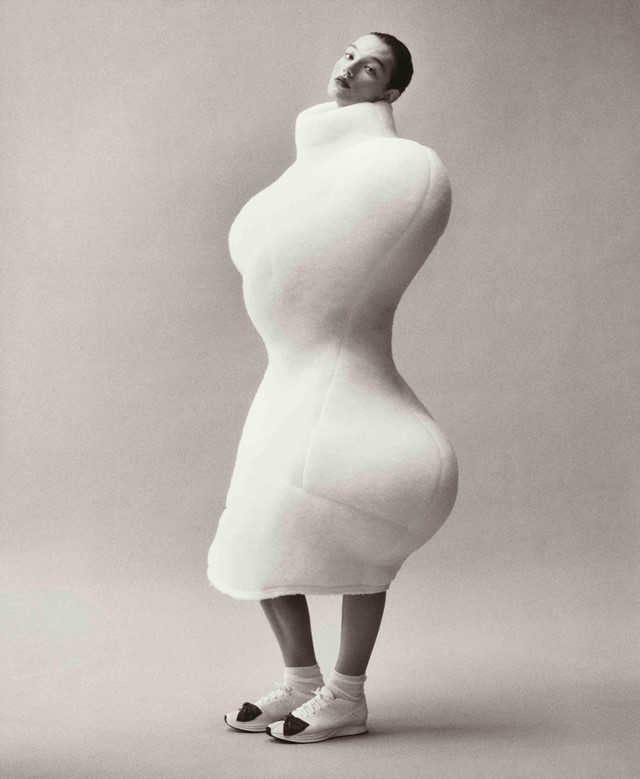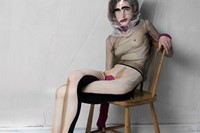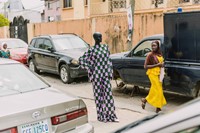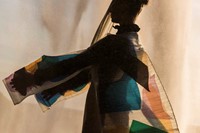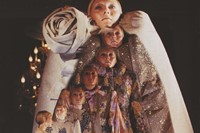Mirror Mirror – Fashion & the Psyche at MoMu Antwerp is opening “a new dialogue on body images, mental health, and well-being in the fashion industry,” and features work by Cindy Sherman, Simone Rocha and Sarah Lucas
Fashion occupies a delicate position in the ever-complicated body-mind nexus: it can be a constructor and a destructor of self as clothes negotiate the tender boundary between our person and the world. How we dress can help us to make sense of ourselves, yet external fashion media can equally disfigure what we thought true. Mirror Mirror, a new exhibition at MoMu Antwerp held in conjunction with the Dr. Guislain Museum in Ghent, delves into this knotty relationship through the encompassing theme of the psyche.
It’s a tough concept to tackle – how does one translate one of the great mysteries of the human condition into a material exhibition? At MoMu, curator Elisa De Wyngaert succeeds by holding the spotlight on the body and dissecting it through the trifocal lens of Reflection, Replica, and Avatar. In three stages, the exhibition looks at how contemporary fashion can influence how we conceive of our bodies, how this experience is surrogated through dolls and mannequins, and, finally, how it is stretched to limitless potential in the digital realm.
The sartorial discourse is bolstered by contemporary artworks from the likes of Genieve Figgis, Sarah Lucas and Cindy Sherman as, explains De Wyngaert, “it’s important to bring different disciplines together and not to isolate fashion as if it’s an island that has nothing to do with the rest of the world.” Mirror, Mirror is in no way intended as a complete story of the fashion-psyche-body relationship but, as De Wyngaert explains, by focusing on these three limbs she hopes to encourage a new way of looking at the body and to “open a new dialogue on body images, mental health, and well-being in the fashion industry.”
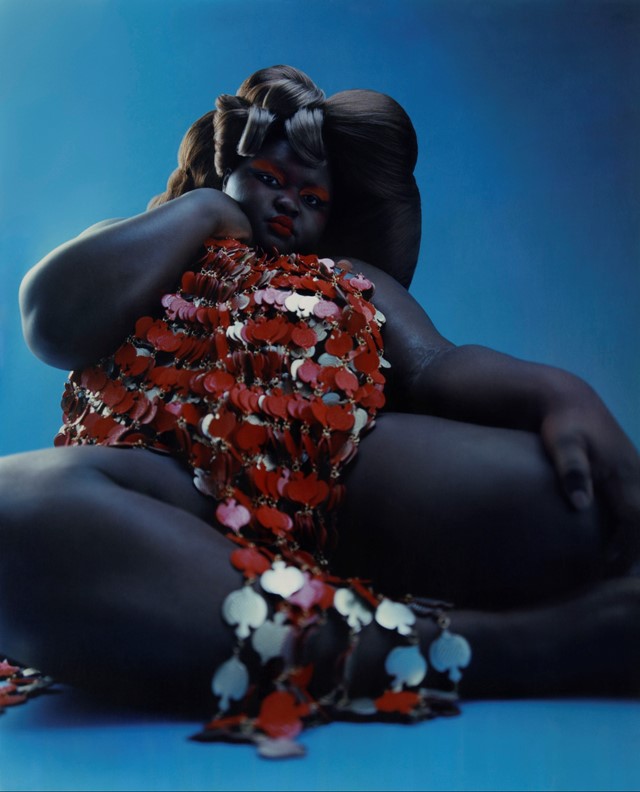
How we relate to our bodies through fashion is often presented as a sickly tale of dysmorphia but, from the opening segment Reflection, the exhibition diverges from typical body stigmas in favour of an empowering and sanguine discourse. Sublime dresses from Molly Goddard, Hussein Chalayan, and Noir Kei Ninomiya encourage the wearer to take up space in the world, while designs from Rei Kawakubo (notably pieces from her 1997 ‘lumps and bumps’ collection for Comme des Garçons) and Martin Margiela champion unconventional constructions of the human form. Certain mannequins don spectacular custom-made wigs from celebrity hairstylist Cyndia Harvey, which further dismantle toxic, standardised ideals of figure in place of a more truthful, more inclusive beauty.
Similarly, in Replica, dolls and mannequins are stripped of their nightmarish connotations and celebrated for their (fascinating) history and potential to carry meaning. In a tradition dating back to the 14th century, dolls were used as portable miniatures to showcase a designer’s collection to overseas buyers – a sort of travelling showroom that has been replicated recently by the likes of Viktor&Rolf, Simone Rocha, and Walter Van Beirendonck (who built a snoring Sleeping Beauty doll specifically for the show). Also of note is a doll donated by Martin Margiela which is dressed in the first garment he ever created: a tiny jacket with visible white stitching (it was the only thread he could find in his grandmother’s house) that would later become his signature.
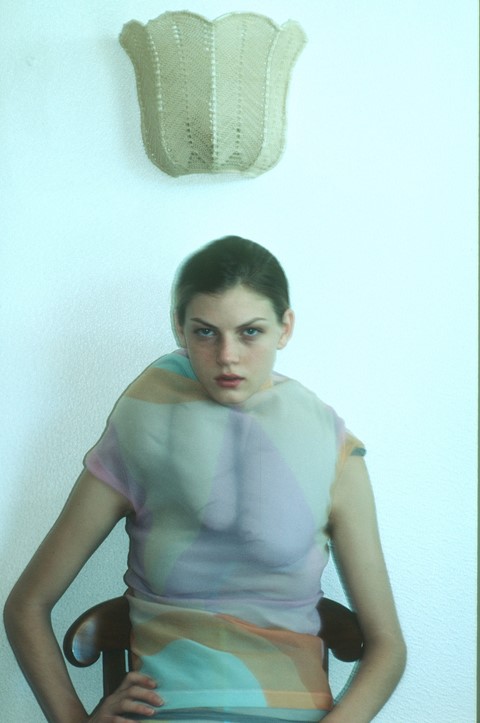
The only moment when the exhibition’s abiding optimism starts to waver is in the closing chapter, Avatar: can the physical self, and all the complex meaning associated with the body, be faithfully translated to a virtual realm? Digital culture is only recently-discovered territory for fashion, so De Wyngaert turns to art to seek answers (and more questions). In fact, the exhibition closes with a projection of Ed Atkin’s 2014 video ode to melancholia in the age of digitalism, Ribbons: in front of the giant screen, you can’t help but feel so small, both corporally and temporally, next to the boundless possibilities of the internet. Can avatars really bridge the physical to the digital self? Who should hold the power to create these virtual selves? And, will they eventually develop emotions, thoughts, complexities – a psyche – of their own?
Mirror Mirror – Fashion & the Psyche is on view at MoMu Antwerp until 26 February 2023.
